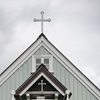Organizing or leading an outreach-focused group in a church setting is not for the weak. However, if you have been called and gifted by God for this task, you are in for the ride of your life! Anytime you attempt to bring others into a personal relationship with Jesus Christ, you will experience the lows—and highs—of spiritual warfare.
For the past several years, my husband, Allen, and I have been involved in an evangelism outreach. We quickly discovered that the strength and outcome of the course depended largely on the success of the small groups. The makings of great groups were always a challenge. I would like to share with you a few things that worked for us:
Make prayer a priority.
Oswald J. Smith, the great Christian statesman known for his fervor for evangelism and prayer, wrote: "Intercessory prayer is the Christian's most effective weapon. Nothing can withstand its power. It will do things when all else has failed…God has placed this mighty weapon in our hands, and He expects us to use it. How disappointed He must be when we lay it aside and substitute natural means for supernatural work."1
The success of the outreach-focused small group depends mainly – and I do mean mainly – on whether or not the leadership has made prayer a priority. Effective evangelism is the work of the Holy Spirit. Even the methods and means by which we carry out our programs should have His signature on them. "Apart from me you can do nothing" (John 15:5b –NIV), Jesus told his disciples.
Make contacts.
Getting the unbeliever through your church door will be your next major task. Put yourself in his or her shoes. What would get you into a Hindu temple or a Muslim mosque? I am betting it would have to be something pretty special!
It is our observation that personal contacts work best. You may attract a few through newspaper ads, billboards, etc., but nothing beats the one-on-one invitation.
You will have to convince your church members that their nonbeliever friends and relatives will benefit from—and enjoy—what you have to offer. So…
Make it great.
Allen and I have been involved in promoting and running Alpha Courses, an interdenominational evangelism tool, for some time now (www.alphacanada.org). It is definitely not the only successful evangelism curriculum out there, but we think it serves as a good example of effective outreach. It has definitely been fine-tuned to reach those who need Christ.
The Alpha Course, now in 155 countries, has helped to bring thousands of people into a personal relationship with God through Jesus Christ. The 10-session course includes ten dinners and a weekend getaway. The bait is "great food, laughter and learning in a fun and friendly atmosphere where no question about life and God is seen as too simple or too hostile (questions could include: Is there a God? Why am I here? Where did I come from? Where am I going?)"
Although the course involves a meal and a talk (usually a video presentation), it is the small groups that make all the difference. The leaders and their "helpers" are trained to facilitate effective discussions and to listen. Many of our attendees have told us how helpful it has been to have someone listen to them. Opening up to their group often serves as a bridge for them to accept Christ.
Make him/her feel at ease.
Several years ago, I attended a course at a Roman Catholic church. As the one-and-only evangelical Protestant, I felt more like a spy than a participant.I was secretly hoping my true identity would not be discovered.
I became nervous when small groups were formed—especially since my group facilitator looked like a priest! When he suggested we each tell our name and a bit about our spiritual background, I wanted to disappear. My heart raced and my neck blotched, but my turn came anyway. To my surprise—and relief—everyone kept smiling at me. In fact, no one, not even the "priest," seemed to care one way or another. Not only did they make me feel welcomed, they made me feel equal.
I often think of that incident when I welcome unbelievers into a small group setting. What can I do to make them feel at home? Do I come across as condescending?
Do they feel like my equal even if we disagree with one another? Most importantly, do they feel loved?
Make it fun.
Someone has said, "A sense of humor helps us overlook the unbecoming, understand the unconventional, tolerate the unpleasant, overcome the unexpected, and outlast the unbearable."
Always remember that it is a very scary—and daring—thing for the unconverted to place themselves in a Christian setting of any sort. It is like volunteering to be Daniel in the lions' den. As a leader, you have the privilege and responsibility of making it easier for them. Humor is an invaluable tool.
All good public speakers know that an appropriate joke or funny story eases their audience—and them—when they are first introduced to each other. I suggest you collect jokes (ones that are actually funny) to use generously with your outreach group. There is no law that says you cannot read them. Say something like, "I'm not good at telling jokes or remembering the punch lines, but I thought you might like this one…"
Humor is also quite helpful in getting a serious point across. It works especially well if you can laugh at yourself. For instance, I sometimes tell the story of how I accepted Christ as a small child. "It must have worked," I add. "My first grade teacher wrote 'Causes Arguments in Religion' across the bottom of my report card."
Make it theirs.
Your goal, as the leader of an outreach-focused group, is to make it become their group—not yours. This is why discussion is so important: There are no winners in a discussion. Once they have heard about the Christian faith via a talk or a video presentation, it is their turn to talk, and it is your turn to listen. Ask them such questions as, "What do you think about what you just heard?" or, "How do you feel about that?"
Do not argue with them. Simply get the ball rolling. (The "helpers" on the Alpha Course are trained to give the Christian viewpoint, but in a gentle and loving manner. It is of utmost important that the attendees feel understood even when they are way off base).
Make the follow-up a success.
Once the attendees of your small group have come to faith in Christ, you will want to help them grow spiritually. We have found that quite often they want to continue meeting. A Bible study for new believers is excellent. The Alpha Course uses Philippians as the base for its follow-up.
They may also be quite willing to start attending your church on a regular basis. This is where a buddy system is helpful. Try to pair them up with someone who can explain the theology and rituals of your particular church or denomination, maybe someone with whom they could share a pew.
I know this sounds like a lot of work—hard work—but the makings of a great outreach-focused group always starts in the heart of God. Why not ask Him if he has your name on one? Believe me, you will not regret the ride!
i. Oswald J. Smith, The Work God Blesses (London: Marshall, Morgan & Scott, 1934).







